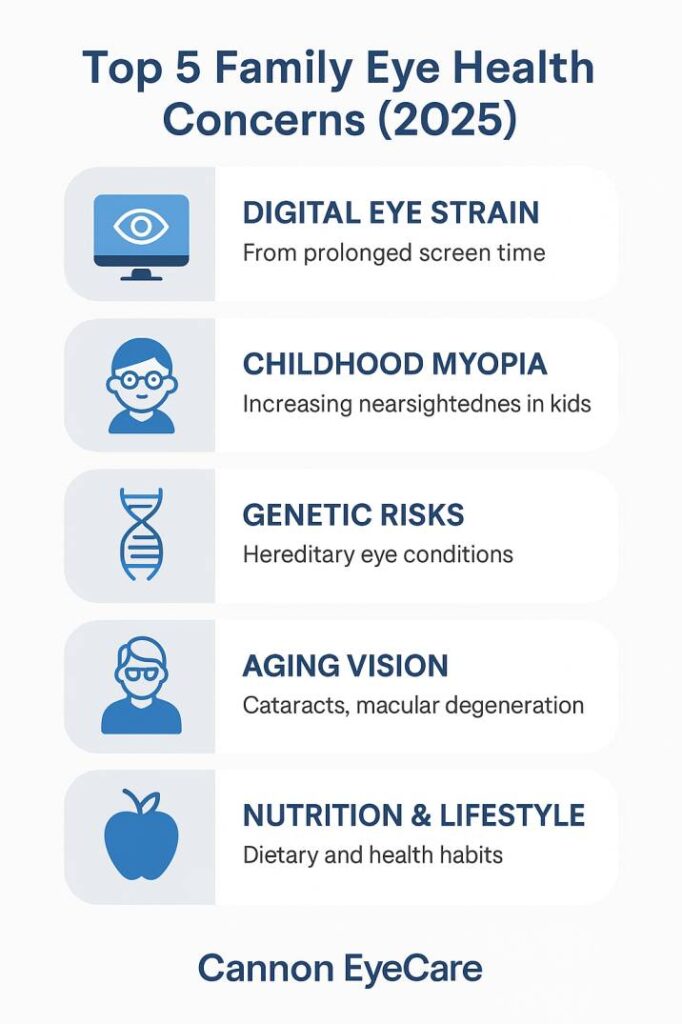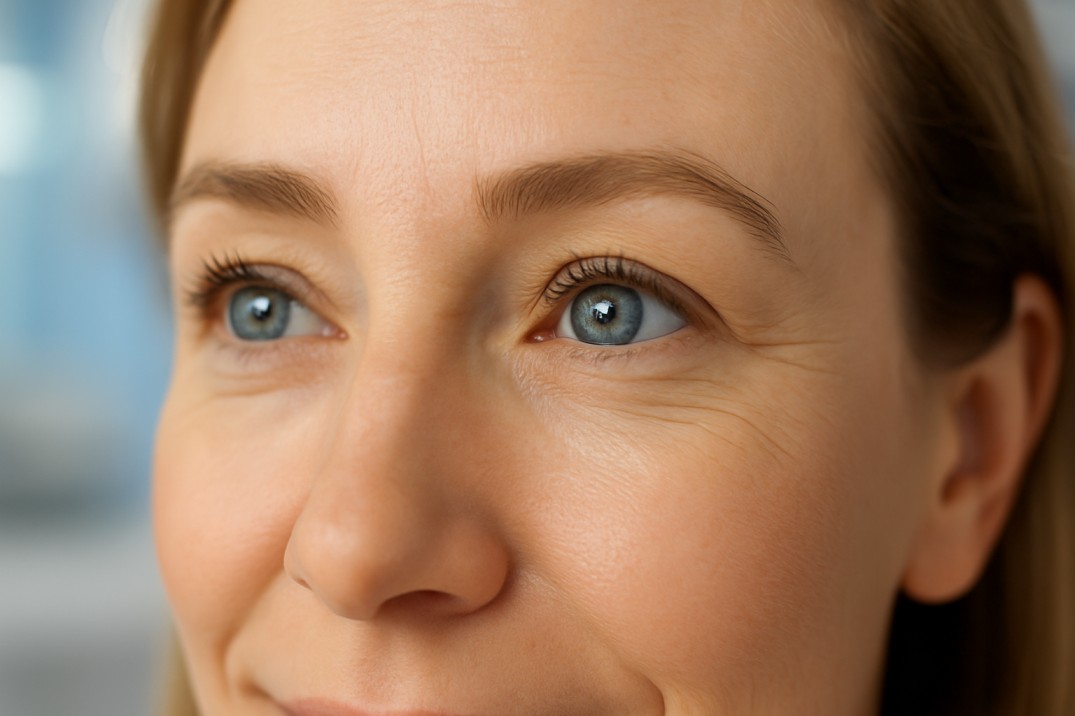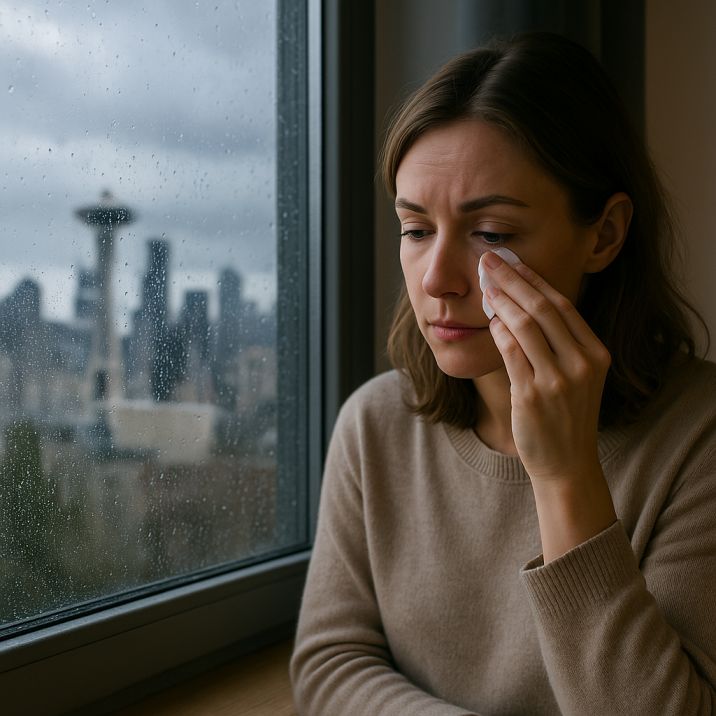Protect Your Family’s Vision in Seattle
Is your family’s vision prepared for 2025?
This guide to family eye health in Seattle reveals rising risks, expert prevention tips, and age-specific care strategies for every stage of life.
Key Takeaways: Family Eye Health in Seattle (2025)
-
Screen Time Is Reshaping Vision Health
Digital eye strain affects all ages—Cannon EyeCare recommends blue light filters, ergonomic screens, and the 20-20-20 rule to protect Seattle’s tech-tied eyes. -
Childhood Myopia Is Rapidly Rising
With increased indoor time and screen use, Seattle kids face a myopia epidemic. Early exams and ortho-k lenses are key to slowing progression. -
Genetic Eye Risks Can Be Managed Early
DNA screening and family history mapping help uncover risks like glaucoma and AMD—empowering proactive care and early interventions. -
Diet & Lifestyle Fuel Long-Term Vision
Nutrients like omega-3s and antioxidants from Pacific Northwest foods support eye health—while hydration, exercise, and sleep enhance protection. -
Seniors Need Specialized, Preventive Care
Age-related issues like cataracts and diabetic retinopathy are common in Seattle’s senior population. Annual exams and coordinated care make the difference. -
Children Need Exams Starting at Age 1
Early detection prevents 80% of learning-related vision issues. Cannon EyeCare follows AOA’s early childhood screening recommendations. -
Environmental & Ergonomic Tweaks Matter
From wraparound UV protection to proper screen alignment and lighting, home and school adjustments significantly reduce visual stress. -
Vision Loss Support Exists in Seattle
Cannon EyeCare connects families with low-vision tools, peer groups, and WA state resources for ongoing support and accessibility.
Top 5 Family Eye Health Concerns in Seattle for 2025
1. Digital Eye Strain Dominates Daily Life
Prolonged screen time is now a leading vision complaint for Seattle families. Both children and adults at Cannon EyeCare report symptoms like:
-
Blurred vision and dry eyes
-
Headaches and neck pain
Difficulty focusing after device use
Our Seattle optometrists emphasize proactive care with blue light filters and the 20-20-20 rule (every 20 minutes, look 20 feet away for 20 seconds).
2. Seattle’s Childhood Myopia Surge
Nearsightedness in Seattle children has skyrocketed, with cases nearly doubling over the last 10 years. Key factors include:
-
Increased indoor time and near-work activities
-
Limited natural sunlight exposure
Genetic predisposition
Early intervention at our Capitol Hill clinic includes specialty contact lenses and ortho-k treatments to slow progression.
3. Genetic Eye Risks: Knowledge is Power
Advanced DNA screening at Cannon EyeCare helps Seattle families uncover hereditary threats like:
-
Glaucoma and retinitis pigmentosa
-
Macular degeneration patterns
Color vision deficiencies
We provide genetic counseling and personalized prevention plans, empowering you with proactive eye health strategies.
4. Fuel Your Vision: Diet & Lifestyle Matters
Seattle families now recognize that vision health starts with daily habits. Essential pillars include:
-
Diet: Omega-3s (wild salmon) and leafy greens (kale)
-
Sleep: 7-9 hours for ocular tissue repair
Exercise: Improved blood flow to the optic nerves
Our nutritional guides help you protect your family’s eyesight through Pacific Northwest-sourced superfoods.
5. Aging Eyes: Specialized Senior Care in Seattle
With Seattle’s growing senior population, we’re seeing increased cases of:
-
Cataracts (clouded lenses)
-
Age-related macular degeneration (AMD)
-
Diabetic retinopathy
Children’s Eye Health: Essential Guidance for Seattle Parents
When Should Seattle Kids Start Eye Exams?
Start early for lifelong vision health: Cannon EyeCare follows American Optometric Association guidelines, recommending:
-
First exam by age 1
-
Critical follow-up before kindergarten
-
Biennial checkups for ages 6-18
Early detection at our Capitol Hill clinic catches 80% of learning-related vision issues before school struggles begin. Schedule your child’s baseline assessment today.
Vision Warning Signs Every Parent Must Recognize
Watch for these symptoms requiring immediate Seattle pediatric eye care:
-
Physical signs: Constant eye rubbing, redness, or watery eyes
-
Visual complaints: Squinting, headaches, blurry vision
-
Behavioral clues: Holding books/devices too close, skipping lines while reading
Trust your instincts – our pediatric optometrists prioritize urgent symptom evaluations.
Protecting Young Eyes: Screen Time & Myopia Prevention
With Seattle children averaging 6-7 daily screen hours (Seattle Children’s Hospital 2025 data), safeguard vision with:
-
SUPERVISE: <1 hour/day non-educational screens under age 6
-
APPLY: 20-20-20 rule during homework/gaming
-
ENCOURAGE: 90+ minutes of daily outdoor play – Green Lake walks lower myopia risk by 45%
Our Bellevue and Queen Anne clinics offer free blue-light filter trials for students.
Lifelong Vision Protection: Cannon EyeCare’s Seattle Age Guide
Children & Teens: Safeguarding Developing Vision
Seattle’s youth need specialized protection:
-
Sports Safety: Impact-resistant goggles for soccer, swimming, and rainy-day activities
-
Academic Vigilance: Early intervention for vision-related learning struggles in Seattle schools
-
Myopia Defense: Our Capitol Hill clinic offers ortho-k lenses to slow progression
Adults (20-40): Defending Prime Vision Years
Protect your most productive decades with:
-
Workplace Shielding: Blue-light filters for tech workers, ANSI-rated goggles for Seattle construction/trades
-
Genetic Awareness: Tracking family history updates for glaucoma/diabetes risks
-
Preventive Baselines: Establishing eye health metrics before age-related changes
Seniors (50+): Preserving Sight in Golden Years
Seattle’s aging population receives:
-
Annual Comprehensive Exams: Early cataract/AMD detection at our Queen Anne clinic
-
Chronic Condition Coordination: Collaborating with your doctor on diabetes/hypertension management
-
Low Vision Solutions: Magnification aids tailored for Pacific Northwest lighting conditions
Cannon EyeCare’s Seattle Screening Schedule
Infants (0-2):
-
When: First exam at age 1
-
Focus: Strabismus and genetic disease screening
Children (3-6):
-
When: Every 1-2 years before kindergarten
-
Focus: Myopia progression and amblyopia (“lazy eye”)
Teens (7-19):
-
When: Biannual checkups
-
Focus: Digital eye strain and sports injury prevention
Adults (20-39):
-
When: Every 2-3 years
-
Focus: Occupational hazards and early presbyopia signs
Adults (40-64):
-
When: Every 2 years
-
Focus: Presbyopia correction and chronic disease monitoring
Seniors (65+):
-
When: Annual exams
-
Focus: Cataract development, AMD changes, and glaucoma pressure checks
Nutrition and Lifestyle: Building Vision-Healthy Families in Seattle
Fuel your family’s eyesight with Pacific Northwest superfoods. Cannon EyeCare recommends these essential nutrients for lifelong vision wellness:
-
Vitamin A Powerhouses: Carrots, sweet potatoes, and kale (from Pike Place Market vendors) support retinal health.
-
Omega-3s for Dry Eye Relief: Wild-caught Washington salmon, walnuts, and flaxseed reduce inflammation.
-
Antioxidant Protection (Vitamins C/E & Zinc): Bell peppers, Washington apples, almonds, and sunflower seeds combat age-related damage.
Critical Lifestyle Shields:
- Drink 8 glasses of water daily – hydration prevents dry eyes in Seattle’s climate
- Avoid tobacco – smokers have 4x higher macular degeneration risk
Home Eye Safety: Creating Vision-Friendly Spaces in Seattle
Transform your living spaces into vision-protective zones:
-
Lighting Upgrades: Install full-spectrum LED bulbs in homework areas to reduce glare
-
Digital Defense: Apply blue light filters on all devices (ask about Cannon EyeCare’s free app)
-
Ergonomic Alignment: Position screens 20-24 inches away at eye level using adjustable stands
School & Work: Defending Young Eyes in Seattle Classrooms
Ensure academic eye safety with these essential steps:
-
Protective Gear Protocol: Keep ANSI-rated goggles in backpacks for science labs/sports at Seattle schools
-
Advocate for Vision Checks: Verify your school district follows Washington State’s annual screening mandate
-
Desk Ergonomics: Request 20-30-20 rule reminders during digital learning (20″ screen distance, 30″ viewing angle, 20 min breaks)
Outdoor Protection: Guarding Against Pacific Northwest Elements
Combat Seattle’s deceptive UV exposure (90% penetration through clouds):
-
Year-Round Essentials: Wrap-around sunglasses with 100% UVA/UVB protection + 3-4″ brim hats
-
Activity-Specific Armor:
-
Cycling/Sports: Helmets with polycarbonate face shields
-
Water Activities: Polarized lenses for glare reduction on Puget Sound
-
Winter Sports: Snow goggles with anti-fog coating
Visit our Ballard location for free UV protection level checks on existing eyewear.
-
Genetics and Family History: Protecting Seattle Families from Hereditary Eye Disease
Many vision-threatening conditions—including glaucoma, macular degeneration (AMD), and retinal disorders—pass through generations. At Cannon EyeCare, we help Puget Sound families proactively manage hereditary risks with these essential steps:
1. Map Your Family Eye Health Tree
-
Document eye conditions across 3 generations
-
Share this history with our Capitol Hill specialists during your comprehensive exam.
-
Seattle Insight: 1 in 4 local AMD cases show familial patterns (UW Medicine 2025 data)
2. Personalized Screening Protocols
If immediate relatives have these conditions, we recommend:
-
Glaucoma: Annual OCT scans starting 10 years earlier than diagnosis age
-
Macular Degeneration: Biannual retina exams + home Amsler grid monitoring
-
Retinal Disorders: Genetic testing panels through our UW Medicine partners
3. Advanced Genetic Counseling
For complex hereditary cases:
-
We coordinate with UW Medicine’s ocular genetics program
-
Interpret genetic testing results during private consultations
-
Develop family-specific prevention plans, including:
-
Nutritional supplementation protocols
-
Lifestyle risk reduction strategies
-
Next-generation monitoring technology
-
Living with Vision Challenges: Seattle’s Support Network
When vision loss affects your family, you’re not alone. Cannon EyeCare connects Seattle residents to these vital resources:
1. Emotional & Community Support
-
Support Groups: Join monthly meetings at Lighthouse for the Blind (Seattle) or SightConnection
-
Counseling: Vision adjustment therapy at our Capitol Hill clinic
-
Peer Networks: Connect with local families through the Washington State Department of Services for the Blind
2. Low-Vision Tools & Training
Regain independence with:
-
Digital Aids: Electronic magnifiers and AI-powered smart glasses (demo at our Queen Anne location)
-
Daily Living Kits: High-contrast phones, talking scales, and tactile markers
-
Occupational Therapy: Covered by most Washington insurance plans
3. Home Safety & Community Navigation
-
Free Home Assessments: Our specialists identify fall risks and install:
-
Task lighting for Seattle’s gray winters
-
Color-contrast stair treads
-
Voice-activated home systems
-
-
Mobility Training: Certified O&M instructors teach route planning for:
-
Downtown Seattle sidewalks
-
Public transit navigation
-
Farmer’s market accessibility
-
4. Integrated Care Pathways
-
Co-management: We coordinate with your UW Medicine ophthalmologist
-
Benefits Navigation: Assistance with WA state low-vision services
-
Technology Grants: Apply for $2K-$5K assistive tech funding through Washington Access Fund
From digital eye strain to genetic risks and age-related changes, protecting your family’s vision in Seattle requires proactive care and expert guidance. With the right screenings, daily habits, and support, clear, healthy sight can last a lifetime.
Don’t wait until vision problems arise.
Schedule your family’s comprehensive eye exams today at Cannon EyeCare—Seattle’s trusted partner in lifelong eye health.
FAQs
-
-
Children: first exam by age 1, then every 1–2 years.
-
Adults: every 2–3 years; annually after age 65 or with risk factors
-




